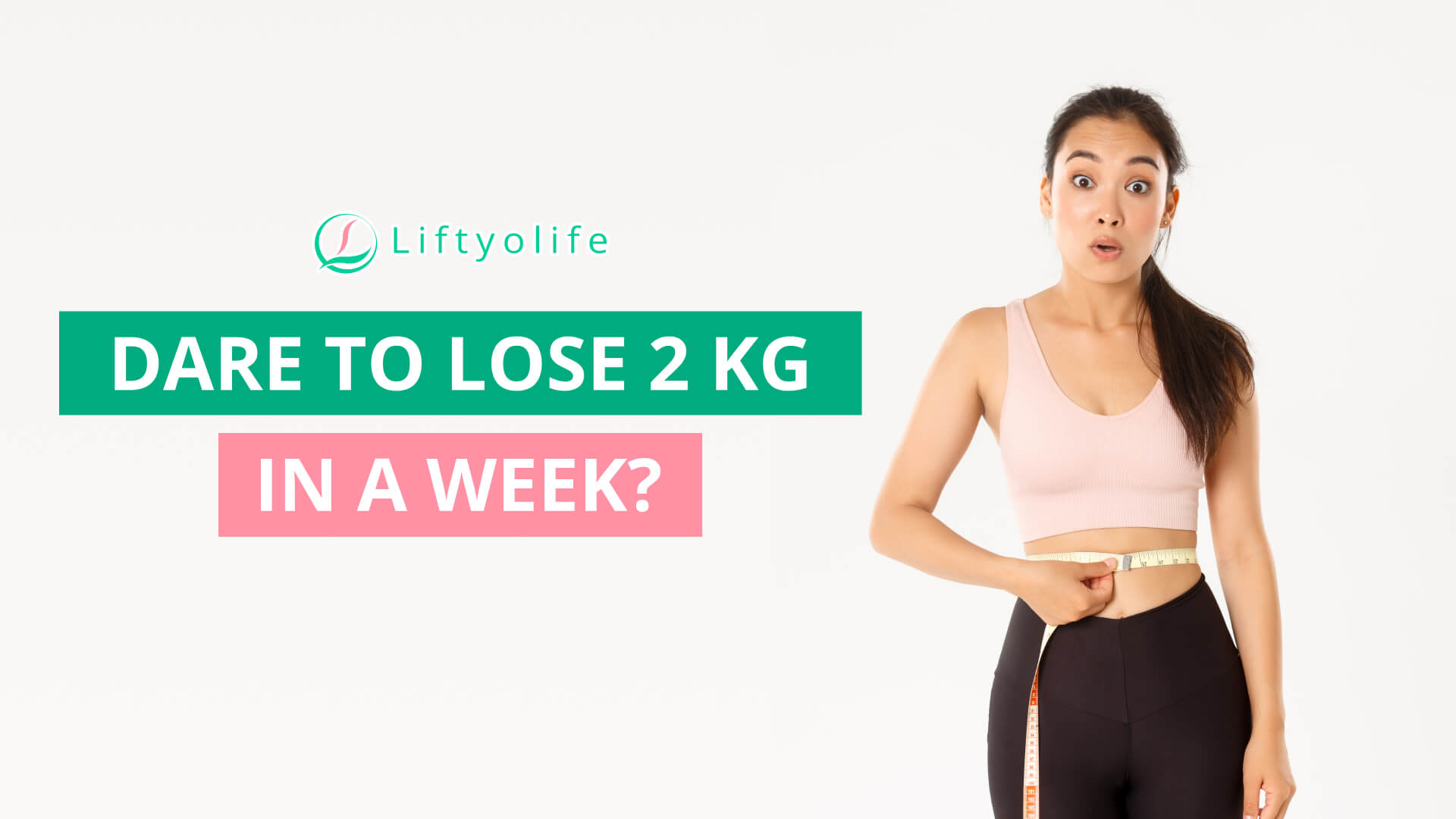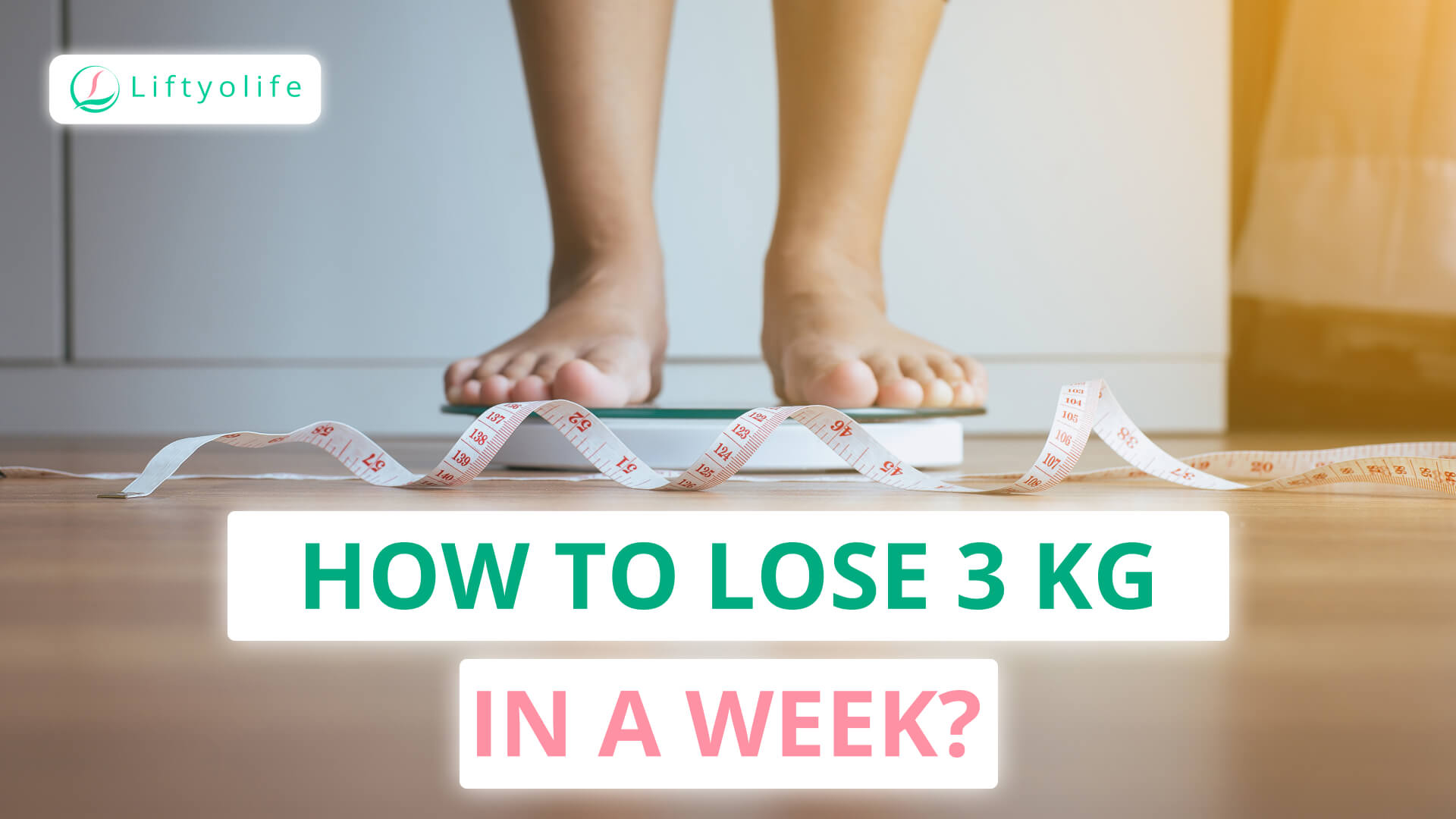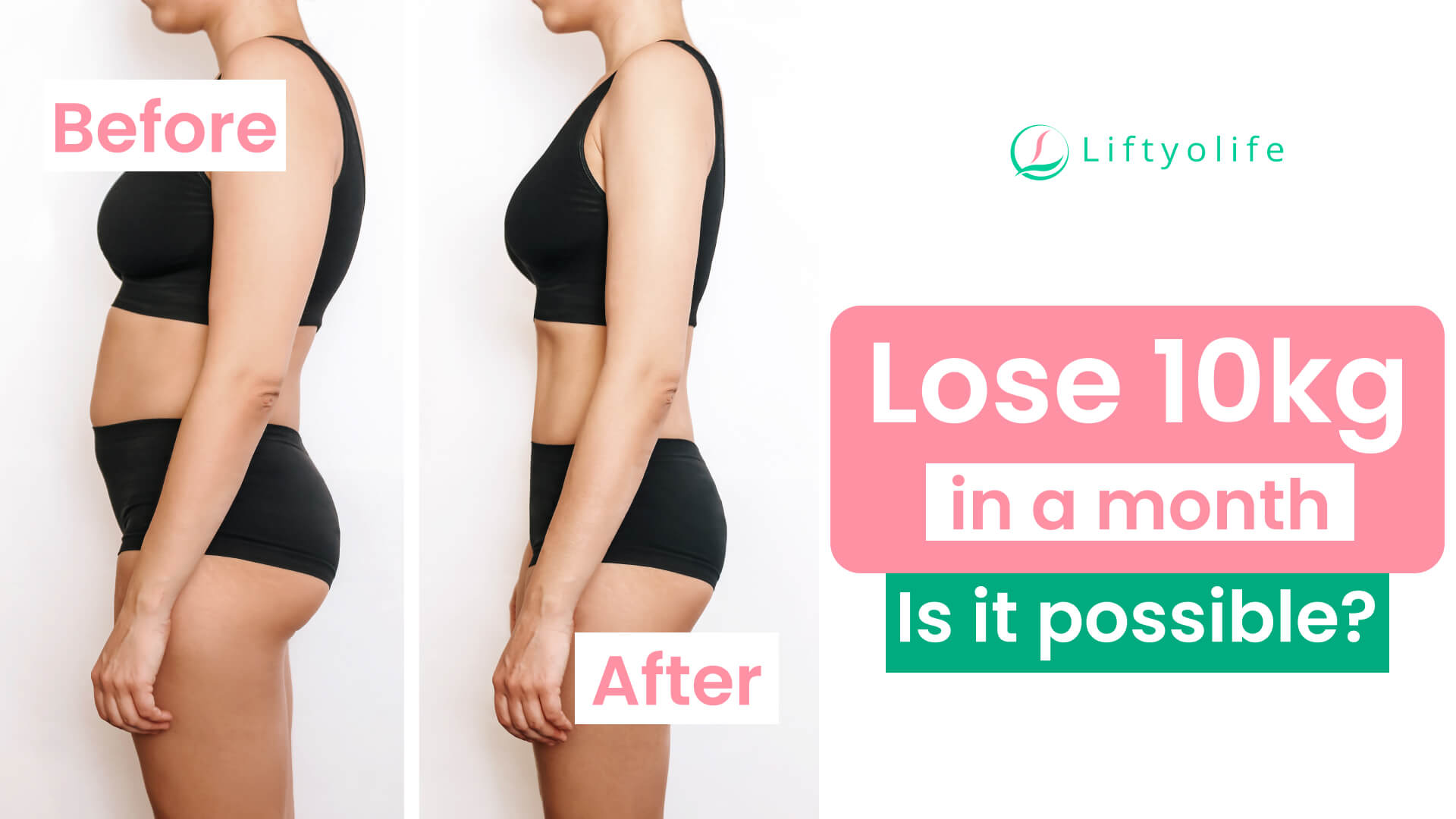How To Lose 30 Pounds In 2 Weeks?

If you are overweight by more than 30 pounds compared to your ideal weight, this article on how to lose 30 pounds in 2 weeks is the best option for you. No drugs or surgery; instead, concentrate on your workouts and diet. Liftyolife provides six fundamental tips to help you lose such pounds in just 14 days. Let’s explore with us!
1. Is it healthy to lose 30 pounds so quickly?
The fact that many people lose more than 30 pounds in 14 days successfully and stay healthy. And so do you. You can lose more than 30 pounds if you stay motivated and follow a proper weight-loss strategy. Being overweight and obese can lead to various dangerous diseases, including high blood pressure and diabetes.
As a result, losing weight is preferable to carrying that weight around. Losing weight is a difficult journey that necessitates perseverance and strong motivation. However, if you achieve a fantastic result quickly, it may inspire you to work harder and make every effort to achieve a more effective result in the future. Those who achieved rapid weight loss were thus more likely to maintain their weight loss than those who did not. Moreover, if you put in the effort but don’t see any results, you will drop your motivation.
However, losing 30 pounds in two weeks is an emergency option; you cannot sustain this method for an extended time, hurting your overall health. Although the rapid weight loss will be very motivating at first, it will wear you down in the long run. So it’s best not to overdo it by sticking with this diet and exercise plan for more than a couple of weeks. It’s best to reduce the diet plan after the two weeks are up.
2. How to lose 30 pounds in 2 weeks?
If you want to lose 30 pounds in 2 weeks, you need to develop a proper weight-loss plan, select specific exercises, seek sound dieting and training advice, and begin specific diets.

How to lose 30 pounds in 2 weeks?
2.1. Creating a weight-loss plan
- Avoid calorie-counting diet plans: Instead of limiting yourself to a certain number of calories per day, we recommend developing a diet plan that addresses your nutritional needs to live a healthy lifestyle. Every person’s nutritional needs differ depending on their age, weight, activity level, and other medical needs.
- Calculate your macronutrients: Make sure you give your body what it needs to grow muscle, melt fat, and maintain a high energy level.
- Carbohydrates,
- Proteins,
- Fats.
- Calculate the number of calories burned to lose weight: a pound contains 3,500 calories. This means that to lose a pound of weight, you must burn 3,500 more calories than your daily calories intake.
- Find foods that fit the bill: Spend some time locating foods compatible with your new way of life. A weight-loss diet plan that works must include foods you will actually eat. Once you’ve started your diet, try to add one or two new fruits, vegetables, or grains to your list each week.
- Stock up on recipes: Having a large recipe selection in your diet plan for weight loss is essential because it keeps you from becoming bored. Many dieters fail to reach their goals because they lose interest in their daily menus.
- Make an eating schedule: Try to space your meals and snacks about 3 hours apart. This prevents you from becoming overly hungry and turning to unhealthy foods to satisfy your hunger.
- Set weekly or monthly goals: break down your goals into more manageable chunks so that you don’t get discouraged and quit if you don’t see immediate results.
- Keep track of, analyze, and adjust: Keep a food diary to keep track of your meal plan. Make adjustments to stay on track with your goal weight.
2.2. Choosing specific exercises
How to lose 30 pounds in 2 weeks? You can choose one of these specific exercises below:
- Cardio: Cardio is the most popular type of exercise for losing weight. In addition, it has many particular health benefits. It improves respiration, strengthens the heart muscle, and lowers stress and depression.
- Individual sports: Individual sports allow you to put your determination and endurance to the test. Skiing or snowboarding, tennis, or rock climbing are examples of these sports.
- Team sports: Team sports are excellent at motivating people to go above and beyond when it comes to working out and burning many calories over a long time. Basketball, soccer, and ice hockey are all popular sports that are great for burning calories.
- Half-marathon or a full marathon: It is another method for losing weight. Long hours of running are required for training, which burns thousands of calories. Expect to see more dramatic results as you increase your training intensity.
- Combine strength training into your workout: When combined with effective dieting and targeted aerobic exercises, strength training can significantly aid in weight loss.

Choosing specific exercises
2.3. Getting basic dieting advice
- Determine your basal metabolic rate and consume fewer calories than you expend. The key to losing weight is to consume fewer calories than you burn throughout the day, so knowing the number of calories you burn is critical in tailoring your diet to lose weight.
- Eat regularly and avoid skipping meals: Eating at regular intervals aids in the faster burning of calories. It also lowers the desire to snack on high-fat, high-sugar foods. Skipping meals is likely to activate the starvation response, making binge eating more appealing.
- Cut down the intake of refined carbohydrates: Refined carbohydrates include sugars and grains that have had their fiber and other nutrients removed. White flour, pasta, and bread are a few examples. These foods are low in fiber, quickly digested, and the excess is often stored as fat. They also only keep you full for a short time.
- Make room for healthy fat: Healthy fats can help you lose weight. Following a high-fat diet rich in foods like olive oil, avocados, and nuts can maximize weight loss. Furthermore, fats keep you fuller for longer, reducing cravings and assisting you in staying on track.
- Consume lean protein: People who follow a high-protein diet eat fewer calories and feel more satisfied (and less hungry) than before beginning the diet.
- Maintain a healthy balance in your diet by eating fresh fruits and vegetables, whole grains, legumes and nuts, fish, and lean meat.
2.4. Getting basic exercise advice
- Maintain consistency and patience: Because losing weight does not happen overnight, you should exercise a little bit every day. Consistency is the key to losing weight.
- Consider the following high-intensity intervals (slow-to-fast walking counts): It allows you to burn more fat than if you exercised at a steady, continuous pace. HIIT has been shown in studies to help regulate insulin, improve heart function, and even reverse aging at the cellular level and burn fat.
- Work out when having the most energy: Try to work out whenever you feel energized. It makes no sense to exercise when your tank is empty; you’ll get far more bang for your buck if you exercise at the right time.
- Keep your inspiration close to your heart: it inspires you to keep trying even when you don’t think you can. Furthermore, exercising with a friend is an intelligent way to keep your motivation high.
- Make sure you get enough sleep: Inadequate sleep can cause an increase in the hormone ghrelin. Ghrelin increases hunger and has the potential to influence how fat is stored in the body.
2.5. Putting it all together
- Understand that you can’t lose weight in just one area: You cannot lose fat only from your thighs and belly because fat is broken down by the body for fuel and can come from anywhere.
- Drink plenty of water: Water is clean, refreshing, abundant, and, most importantly, calorie-free.
- Don’t give up: Two months is a long time; even if you don’t lose 30 pounds, it’s plenty of time to improve how you look and feel noticeably.
- Consume a full breakfast, a light lunch, and a light dinner. Eating a full breakfast will help your body kick-start its metabolism and prepare it for the day ahead.
2.6. Starting specific diets
How to lose 30 pounds in two weeks? Let’s start on one of 5 specific diets below:
- The Mediterranean diet emphasizes eating various fruits, vegetables, fish, and healthy oils while limiting refined and highly processed foods. While it is not a diet, studies show that it can help weight loss and overall health.
- The DASH diet focuses on eating many fruits, vegetables, whole grains, and lean meats. It has low sodium, red meat, added sugars, and fat content. While the DASH diet is not a weight loss diet, many people claim to have lost weight while following it.
- Plant-based diets, such as veganism and vegetarianism, can have significant health benefits, such as a lower risk of high blood pressure, diabetes type 2, and high cholesterol. They can, however, be restrictive for some people.
- The Atkins diet is a low-carb diet that recommends limiting net carb intake in favor of proteins and even specific fats.
- Intermittent fasting: Intermittent fasting limits the amount of time you can eat, which is a simple way to cut your calorie intake. This can result in weight loss unless you compensate by overeating during permitted eating times.
How to lose 30 pounds in 2 weeks? Keep in mind that you’ll need to change your eating habits daily if you don’t want to gain weight. Follow these suggestions strictly and keep your motivation high during this period. Let Liftyolife know if you get an amazing result.
==> Read More:







